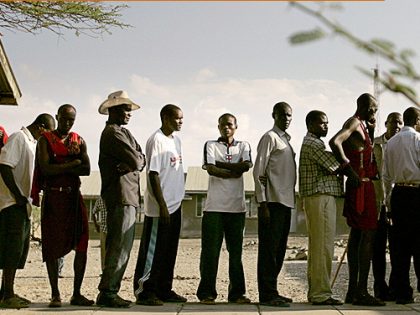
The business of lies
The Internet has lied to the gullible for years, and Africa's version of fake news sites have been carrying on the tradition.

The Internet has lied to the gullible for years, and Africa's version of fake news sites have been carrying on the tradition.
After re-reading this article last night, I traveled to the end of the world and was

Once again, The New York Times doesn't inform Western audiences about the complexities of governance in Africa or the agency of those who are ruled.

Elections provide opportunities for national self-examination and renewal, maybe not in Kenya.

The question for Western journalists is this – when it comes to Africa, why do you not tell the whole story of the humanity at work even in times of extreme violence?

Barely any group has been as de-humanized as much in recent history as Somali pirates, treated almost like vermin to be rooted out.

The fantasies of Blackwater, the Michigan firm of mercenaries and as contractor to imperial powers. Also, how it employs Africa as a rhetorical device to get more business.

Pulitzer awarded Gettleman $10,000 for "his vivid reports, often at personal peril, on famine and conflict in East Africa."

The New York Times East Africa correspondent can be summarized in three self evident points.

By Abdourahman Waberi* Jeffrey Gettleman will not run the risk of being seen as ‘a nobody,

The United Nations just made public a report about human rights abuses committed by Rwandan troops against Hutu refugees in then-Zaire in 1996-1997.

Jeffrey Gettleman, The New York Times’ Africa Correspondent, frequently seizes opportunities to slander Africans while praising their colonizers.

Is the New York Times' correspondent in East Africa, a journalist or just someone relaying stereotypes?